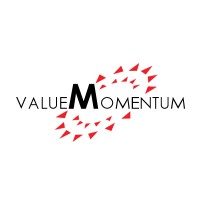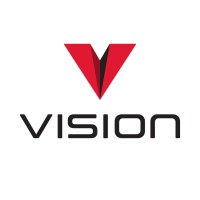

Data Modeler
⭐ - Featured Role | Apply direct with Data Freelance Hub
This role is for a Data Modeler with 12+ years of experience in the Property and Casualty insurance domain, located onsite in NY/NJ. Key skills include data modeling, database design, and data governance. Proficiency in SQL and data modeling tools is required.
🌎 - Country
United States
💱 - Currency
$ USD
-
💰 - Day rate
-
🗓️ - Date discovered
September 25, 2025
🕒 - Project duration
Unknown
-
🏝️ - Location type
On-site
-
📄 - Contract type
Unknown
-
🔒 - Security clearance
Unknown
-
📍 - Location detailed
Piscataway, NJ
-
🧠 - Skills detailed
#Security #NoSQL #Business Analysis #MySQL #Database Design #GDPR (General Data Protection Regulation) #Data Manipulation #Storage #Data Architecture #Data Engineering #Data Governance #Data Security #Data Storage #Quality Assurance #Data Warehouse #Documentation #Database Schema #MongoDB #Data Analysis #Data Modeling #"ETL (Extract #Transform #Load)" #Physical Data Model #Oracle #Data Quality #Data Privacy #Data Profiling #PostgreSQL #Scripting #Databases #DBA (Database Administrator) #ERWin #SQL (Structured Query Language) #Data Integration
Role description
Role: Data Modeler
Location: NY/NJ (Onsite)
No. of years experience: 12+years
Must have Property and Casualty insurance domain experience.
Job Duties and Responsibilities:
Data Modeling:
• Design, create, and maintain conceptual, logical, and physical data models for data warehouses, claims databases, and other data storage systems.
• Work with claims stakeholders to understand business requirements and translate them into Data Modeling specifications.
• Develop and maintain entity-relationship (ER) diagrams and other types of data flow representations.
Data Analysis:
• Analyse business requirements and current systems to ensure data model alignment.
• Perform data profiling to understand claims data structures, relationships, and quality.
• Identify data quality issues, inconsistencies, and gaps within data sources.
Database Design and Architecture:
• Collaborate with Database Administrators (DBAs) and Data Architects to design efficient, high-performance database structures.
• Define database schema, indexes, relationships, and constraints to ensure data consistency and integrity.
• Ensure data models adhere to industry standards and best practices.
Collaboration with Business and IT Teams:
• Work closely with claims business analysts, data engineers, and IT teams to define data requirements and model solutions.
• Act as a bridge between technical and non-technical stakeholders to ensure proper data understanding and usage.
• Translate business requirements into technical specifications for data storage and retrieval.
Data Integration:
• Design and implement data integration strategies to combine data from multiple sources.
• Ensure seamless data flow and integration between systems, databases, and applications.
• Monitor and optimize data transfer processes to enhance performance and reduce latency.
Performance Optimization:
• Optimize data models and queries for performance improvements in data retrieval and reporting.
• Analyse and resolve performance bottlenecks in data systems or applications.
Documentation and Standards:
• Develop and maintain comprehensive data model documentation for future reference and troubleshooting.
• Define and enforce standards for data naming conventions, data structure formats, and documentation practices.
• Provide guidance on how to interpret and implement data models.
Data Governance and Security:
• Ensure data models comply with data governance policies, standards, and best practices.
• Collaborate with the security team to implement security controls and ensure sensitive data is protected.
• Support data privacy and regulatory requirements (e.g., GDPR, HIPAA).
Model Review and Quality Assurance:
• Conduct data model reviews and validation sessions to ensure quality and alignment with business needs.
• Perform data model testing to identify issues or errors before implementation.
Training and Mentorship:
• Provide training and guidance to team members, such as data engineers and analysts, on how to use and maintain data models effectively.
• Mentor junior data modelers and help them grow their skills in the field.
Continuous Improvement:
• Stay updated with new Data Modeling techniques, tools, and technologies.
• Continuously improve existing data models by applying lessons learned, optimizing structures, and incorporating feedback.
Skills and Qualifications:
• Proficiency in Data Modeling tools (e.g., Erwin, Microsoft Visio, Oracle SQL Developer).
• Strong understanding of relational and NoSQL databases (e.g., MySQL, PostgreSQL, MongoDB).
• Experience with data warehousing, ETL processes, and data integration tools.
• Knowledge of SQL and scripting languages for data manipulation and Modeling.
• Understanding of data governance, data security, and privacy practices.
• Strong analytical and problem-solving abilities.
Role: Data Modeler
Location: NY/NJ (Onsite)
No. of years experience: 12+years
Must have Property and Casualty insurance domain experience.
Job Duties and Responsibilities:
Data Modeling:
• Design, create, and maintain conceptual, logical, and physical data models for data warehouses, claims databases, and other data storage systems.
• Work with claims stakeholders to understand business requirements and translate them into Data Modeling specifications.
• Develop and maintain entity-relationship (ER) diagrams and other types of data flow representations.
Data Analysis:
• Analyse business requirements and current systems to ensure data model alignment.
• Perform data profiling to understand claims data structures, relationships, and quality.
• Identify data quality issues, inconsistencies, and gaps within data sources.
Database Design and Architecture:
• Collaborate with Database Administrators (DBAs) and Data Architects to design efficient, high-performance database structures.
• Define database schema, indexes, relationships, and constraints to ensure data consistency and integrity.
• Ensure data models adhere to industry standards and best practices.
Collaboration with Business and IT Teams:
• Work closely with claims business analysts, data engineers, and IT teams to define data requirements and model solutions.
• Act as a bridge between technical and non-technical stakeholders to ensure proper data understanding and usage.
• Translate business requirements into technical specifications for data storage and retrieval.
Data Integration:
• Design and implement data integration strategies to combine data from multiple sources.
• Ensure seamless data flow and integration between systems, databases, and applications.
• Monitor and optimize data transfer processes to enhance performance and reduce latency.
Performance Optimization:
• Optimize data models and queries for performance improvements in data retrieval and reporting.
• Analyse and resolve performance bottlenecks in data systems or applications.
Documentation and Standards:
• Develop and maintain comprehensive data model documentation for future reference and troubleshooting.
• Define and enforce standards for data naming conventions, data structure formats, and documentation practices.
• Provide guidance on how to interpret and implement data models.
Data Governance and Security:
• Ensure data models comply with data governance policies, standards, and best practices.
• Collaborate with the security team to implement security controls and ensure sensitive data is protected.
• Support data privacy and regulatory requirements (e.g., GDPR, HIPAA).
Model Review and Quality Assurance:
• Conduct data model reviews and validation sessions to ensure quality and alignment with business needs.
• Perform data model testing to identify issues or errors before implementation.
Training and Mentorship:
• Provide training and guidance to team members, such as data engineers and analysts, on how to use and maintain data models effectively.
• Mentor junior data modelers and help them grow their skills in the field.
Continuous Improvement:
• Stay updated with new Data Modeling techniques, tools, and technologies.
• Continuously improve existing data models by applying lessons learned, optimizing structures, and incorporating feedback.
Skills and Qualifications:
• Proficiency in Data Modeling tools (e.g., Erwin, Microsoft Visio, Oracle SQL Developer).
• Strong understanding of relational and NoSQL databases (e.g., MySQL, PostgreSQL, MongoDB).
• Experience with data warehousing, ETL processes, and data integration tools.
• Knowledge of SQL and scripting languages for data manipulation and Modeling.
• Understanding of data governance, data security, and privacy practices.
• Strong analytical and problem-solving abilities.




